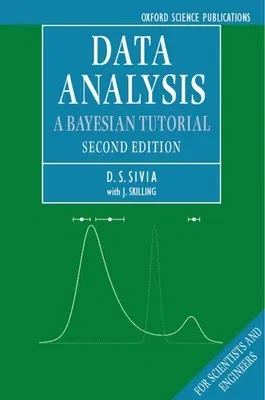Devinderjit Sivia
(Author)Data Analysis: A Bayesian TutorialPaperback, 27 July 2006

Qty
1
Turbo
Ships in 2 - 3 days
Only 1 left
Free Delivery
Cash on Delivery
15 Days
Free Returns
Secure Checkout

Print Length
264 pages
Language
English
Publisher
Oxford University Press, USA
Date Published
27 Jul 2006
ISBN-10
0198568320
ISBN-13
9780198568322
Description
Product Details
Authors:
Book Format:
Paperback
Country of Origin:
GB
Date Published:
27 July 2006
Dimensions:
23.22 x
19.2 x
1.45 cm
ISBN-10:
0198568320
ISBN-13:
9780198568322
Language:
English
Pages:
264
Publisher:
Weight:
412.77 gm